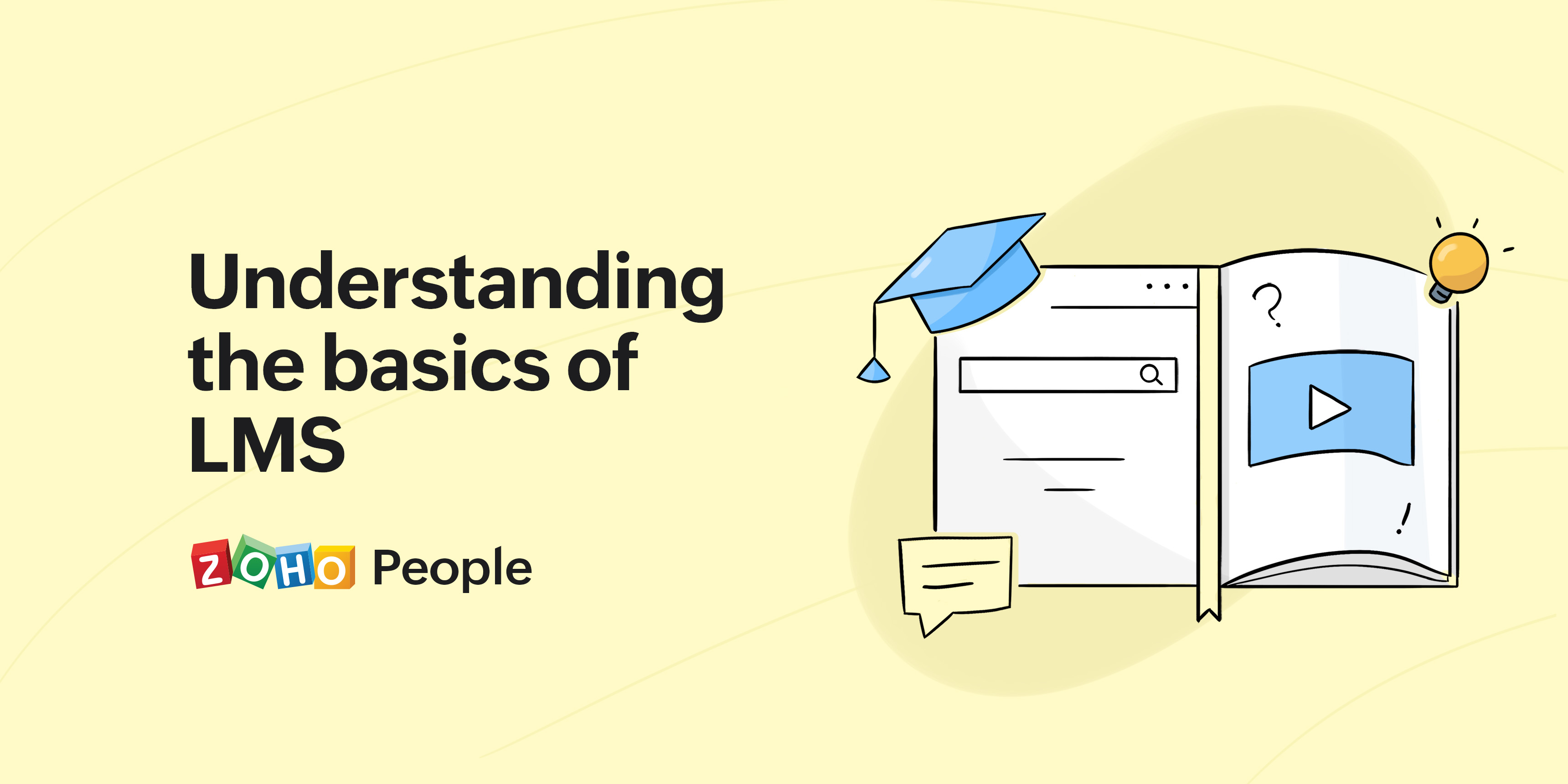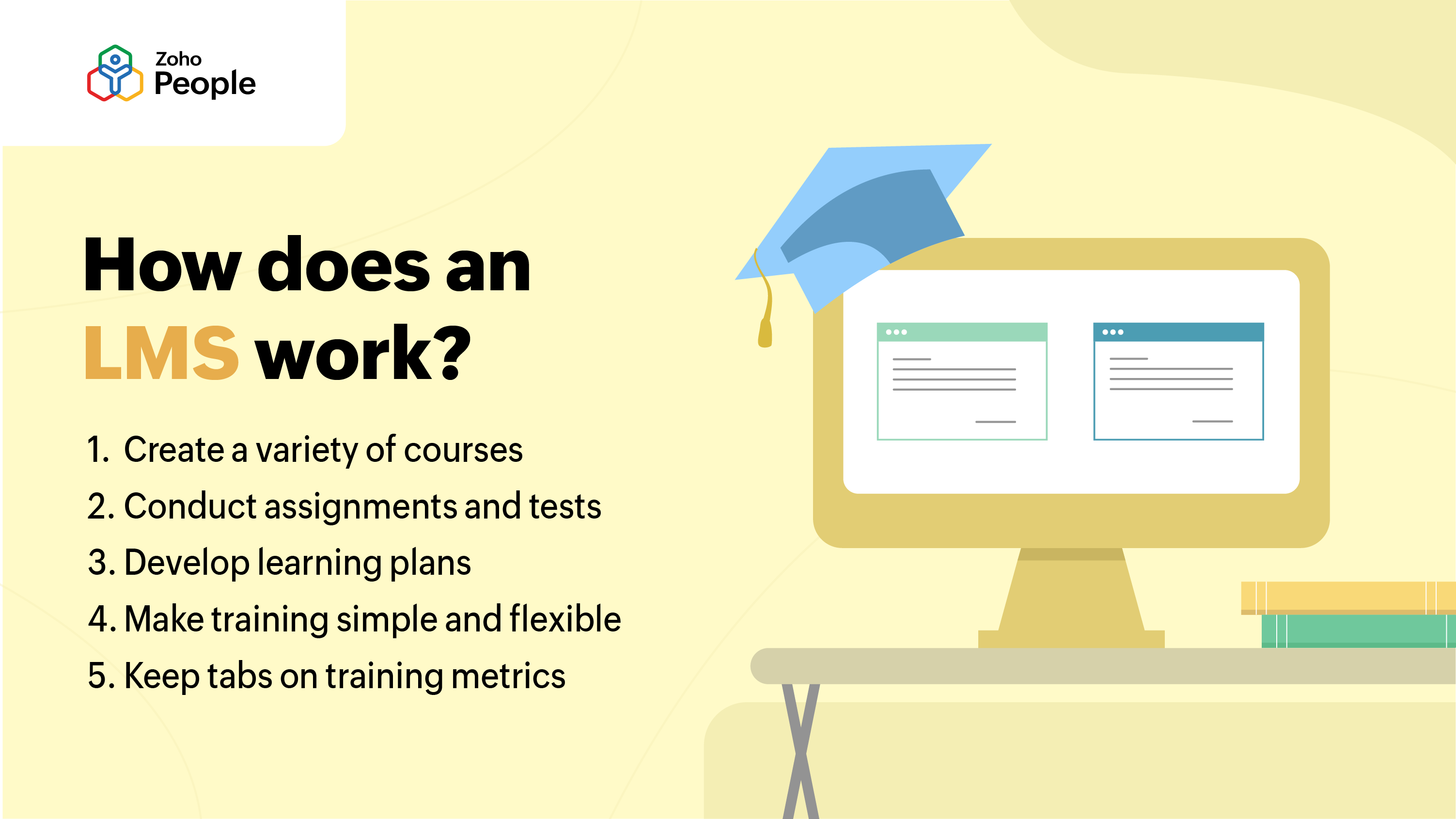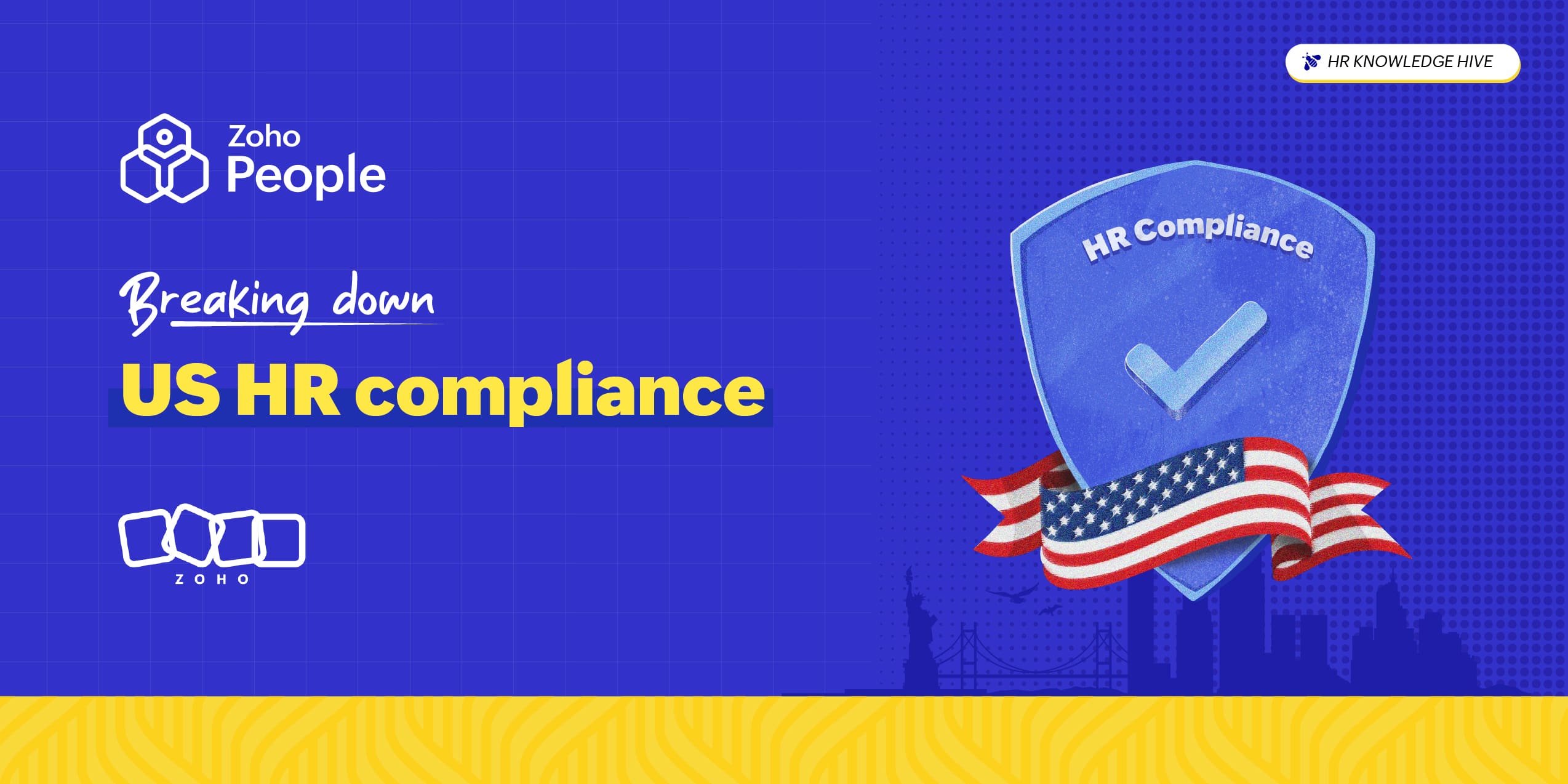- HOME
- More
- Learning and Development
- What is a learning management system?
What is a learning management system?
- Last Updated : March 17, 2025
- 6.3K Views
- 7 Min Read

We are in an era where employees value career development opportunities just as much as monetary benefits. Employees these days don't want to be stuck in a dead-end job, even if the job pays them well, but 94% of LinkedIn survey respondents stated they would stay at their organization if they felt the company was invested in their careers. Companies that conduct training and development programs show employees that their growth is valued while enabling them to contribute more towards organizational success.
That's why regular training and development programs can be a game-changer. Manually arranging these programs is not easy, and this is where a learning management system (LMS), is very helpful. This blog post breaks down the basics of an LMS and explains how you can use it to engage your employees.
What is a learning management system (LMS)?
The learning management system (LMS) is an intuitive HR tool that allows companies to organize training and development programs through a centralized cloud-based system. Course admins can create multiple courses and even conduct them in batches so the entire workforce can take part. Through the system, admins can easily upload all course materials, conduct virtual sessions, create learning plans, organize tests, exchange feedback, and provide assignments to learners.
The LMS is also highly learner-centric. Learners can choose between self-paced and blended approaches based on their preferences. Since the entire system is cloud-based and supports mobile learning, learners can complete their training programs from anywhere, at any time. Some intuitive LMS solutions support learning discussion forums through which learners can discuss and share different perspectives with their peers and instructors.
How does a learning management system work?

While deciding to invest in a learning management system for your organization, it's essential to understand how it works to make the right buying decision. Here are some different ways in which an LMS can simplify training for your organization.
Create a variety of courses, including an induction training program for your new hires, leadership training for your managers, customer relationship management training for your support team, and more in just a few steps. Upload the relevant e-learning materials and let employees choose the learning style that's suitable for them.
Conduct assignments and tests as part of the courses to help employees apply what they've learned practically and get a better understanding of which aspects of the training employees have mastered and which aspects require even more training and attention. The tests can be online or offline, depending on your organization's training policies.
Develop learning plans so employees have a clear idea about the different skills they have to develop to achieve their learning goals and get to the next level in their role. Create different levels, add relevant courses to each one of the levels, and define the expected outcome.
Make training simple and flexible for your employees so the diverse learning needs of different employees are met and they're able to develop a liking for learning. Support multiple learning styles, help employees learn on the go, have learning materials in different formats, facilitate virtual learning, and more effortlessly with an LMS.
Keep tabs on all essential training metrics, including course ratings, course admin ratings, grades information, and the like, so you know what's working and what's not working within your training programs and if the training program is achieving its intended outcomes.
Learn more about how an LMS works and how it can simplify training in our HR Knowledge Hive.
What are the features of a learning management system?
Here are five must-have features every LMS should possess to provide your employees with a wonderful learning experience:
It should support a combination of self-paced, classroom, and virtual learning styles to make learning simple. Look out for features such as video conferencing, a central document management solution, an option to support trainers, and similar features.
It should let you have training materials in different formats including audio, video, document, URLs, decks, podcasts, PDFs, and the like along with the option to download materials.
It should be able to help your training team administer online tests in different formats, including fill in the blanks, multiple choice questions, matching, and more. It should also be able to calculate the test scores.
It should come with a dedicated mobile application that enables learners to access the course content anywhere from their mobile devices at their convenience.
It should allow learners to come together to discuss their perspectives, clear each other's doubts, and have meaningful conversations about the training.
Read more about the must-have features of a learning management system in our HR Knowledge Hive.
What are the key components of an LMS?
Here are five essential components of an LMS that are essential to make your training initiatives a huge success among your employees.
Easy-to-use interface: The LMS you select should allow your IT team to deploy it effortlessly, let training admins create courses seamlessly, help managers track progress smoothly, and enable employees to take courses consistently.
Rich in necessary features: It should have all the features mentioned in the above section to automate every aspect of training and provide an engaging learning experience to employees.
Integrations: It should integrate seamlessly with other third-party tools including your performance management system, video conferencing system, and more to cut down double-work.
Mobile-first capabilities: It should be mobile-first with all the necessary features available in the mobile application, too.
Reporting: It should come with a variety of reports that help you stay on top of all course-related information, including course progress, course completion percentage, ratings, and the like.
Read more about the key components of an LMS in our HR Knowledge Hive.
What are the advantages of a learning management system?
Using an LMS to conduct training programs can prove to be super beneficial to both learners and training admins in multiple ways. Here are some of the key advantages of an LMS for your organization:
- Makes the process of conducting training programs less tedious by supporting a variety of course settings that can be used to create multiple courses, define permissions, support different learning styles, and a lot more.
- Helps training admins include training resources in various formats that learners can easily access and download from anywhere, at any time.
- Provides clarity to training admins on how different courses are progressing, who have enrolled for the course, who have taken up the tests, who have submitted their assignments, and such similar useful insights.
- Offers an engaging learning experience to employees by helping them offer feedback, collaborate with fellow learners, and support mobile learning.
- Provides actionable reports to enhance training programs, allowing admins to easily track course ratings and materials for continuous improvement.
How do I choose the right learning management system?
Here's how you can select the right learning management software consistent with your organization's training needs.
Assess the training needs, challenges, and goals of your organization to get a better idea about what to look for in your LMS.
Make a list of features you'd want in your LMS based on the training goals you've defined and other must-have features.
Request a detailed demo from the LMS vendors you've shortlisted and use a trial for a minimum of 30 days.
Once you've finalized your LMS provider, be sure to stay on the same page when it comes to deployment, customization, support, compliance, and all other aspects.
Implement the LMS for your entire organization along with a dedicated training session that'll help your employees get familiar with the system.
Read more about how to choose the right LMS in our HR Knowledge Hive.
How does an LMS help different roles?
Here's how an LMS can be beneficial to individuals from different roles in your organization.
C-level leaders: In addition to helping C-level leaders bring better alignment between organizational objectives and training initiatives, an LMS also helps them stay on top of skill gaps, training progress, and the like.
Managers: Managers can make use of an LMS to suggest and enroll their team members in courses they think would be beneficial to them and also provide necessary training feedback to their team.
Employees: With an LMS, employees can level up their skills and competencies on the go while benefiting from flexible learning experiences and personalized learning paths.
Should you adopt a learning management system?
Here are some compelling reasons why an LMS could be one of your organization's best tech investments.
1. Onboarding training
Training your new hires is crucial to ensuring they adapt to your company culture and their job responsibilities smoothly. With an LMS, your entire onboarding training can be automated to provide an exceptional onboarding training experience to your new hires. If you want your new hires to learn about your company's vision and mission, you could include a short video about your organization as part of their training program. If mentors want to provide constructive feedback to help new hires get started, they can do so through the LMS itself, too.
2. Compliance training
Organizations need to remain compliant with certain rules and regulations, and effective compliance training programs will keep employees in the know. You can easily include related learning materials in the LMS so your employees can access them from anywhere. Similarly, you can also conduct online quizzes and tests to ensure your employees are clear on the terms dictated by those laws and grade them accordingly.
3. Diversity, equality, and inclusion (DEI) training
Training programs that focus on DEI lead to stronger workplace culture, improved teamwork, and greater innovation. As part of your DEI training, you may want to encourage your learners to discuss key topics with their peers, such as common biases and stereotypes. The discussion forums in your LMS can be really helpful in initiating such discussions among learners.
4. Soft skills training
Soft skill training courses can enable your employees to communicate more effectively and think critically at work. As part of your soft skills training, you may want to conduct assignments and activities. Your learners can submit their assignments through the LMS itself, and if your employees are working remotely, all of the activities can be conducted through the system's video conferencing software.
Wrapping up
Implementing an LMS for your organization can truly make training and development a breeze. LMS solutions offer a flexible approach to learning that motivates your employees to complete their training programs.
Zoho People's human resource management system has a built-in LMS that aligns with your organization's training goals to make training and development regular, easy, and flexible. Learn more about Zoho People's LMS.
 Tarika
TarikaContent Specialist at Zoho People


